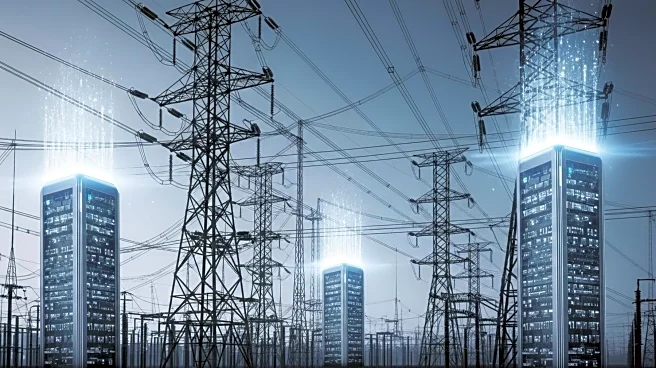What is the story about?
What's Happening?
The rapid expansion of data centers by Big Tech companies is placing significant pressure on U.S. electric grids, prompting policymakers to consider new strategies to manage power demand. In Texas, lawmakers have initiated measures to disconnect large electricity users, such as data centers, during power emergencies to prevent blackouts. This approach is gaining traction in other regions, including the mid-Atlantic, where PJM Interconnection has proposed that new data centers may not be guaranteed electricity during emergencies. This proposal has sparked concerns among power plant owners and the tech industry, as it could destabilize energy markets and deter investment. Data centers are crucial for the operation of AI technologies, which require substantial computing power, further exacerbating the demand on electricity grids.
Why It's Important?
The increasing demand for electricity by data centers poses a challenge to the stability of U.S. power grids. If not managed properly, this could lead to frequent power outages, affecting both residential and commercial users. The proposed strategies aim to balance the need for reliable power supply with the growing energy demands of data centers. However, these measures could impact the tech industry, which relies heavily on uninterrupted power for operations. Additionally, the rising electricity costs associated with supporting data centers may lead to higher utility bills for consumers. The situation underscores the need for innovative solutions to meet energy demands without compromising grid stability.
What's Next?
As the demand for data centers continues to grow, grid operators and policymakers will need to explore further strategies to manage electricity consumption. This may include incentivizing data centers to develop their own power sources or implement energy-saving measures. The tech industry may also need to invest in more energy-efficient technologies to reduce their impact on the grid. Ongoing discussions and regulatory developments will shape the future of energy management in the U.S., with potential implications for both the tech industry and consumers.














